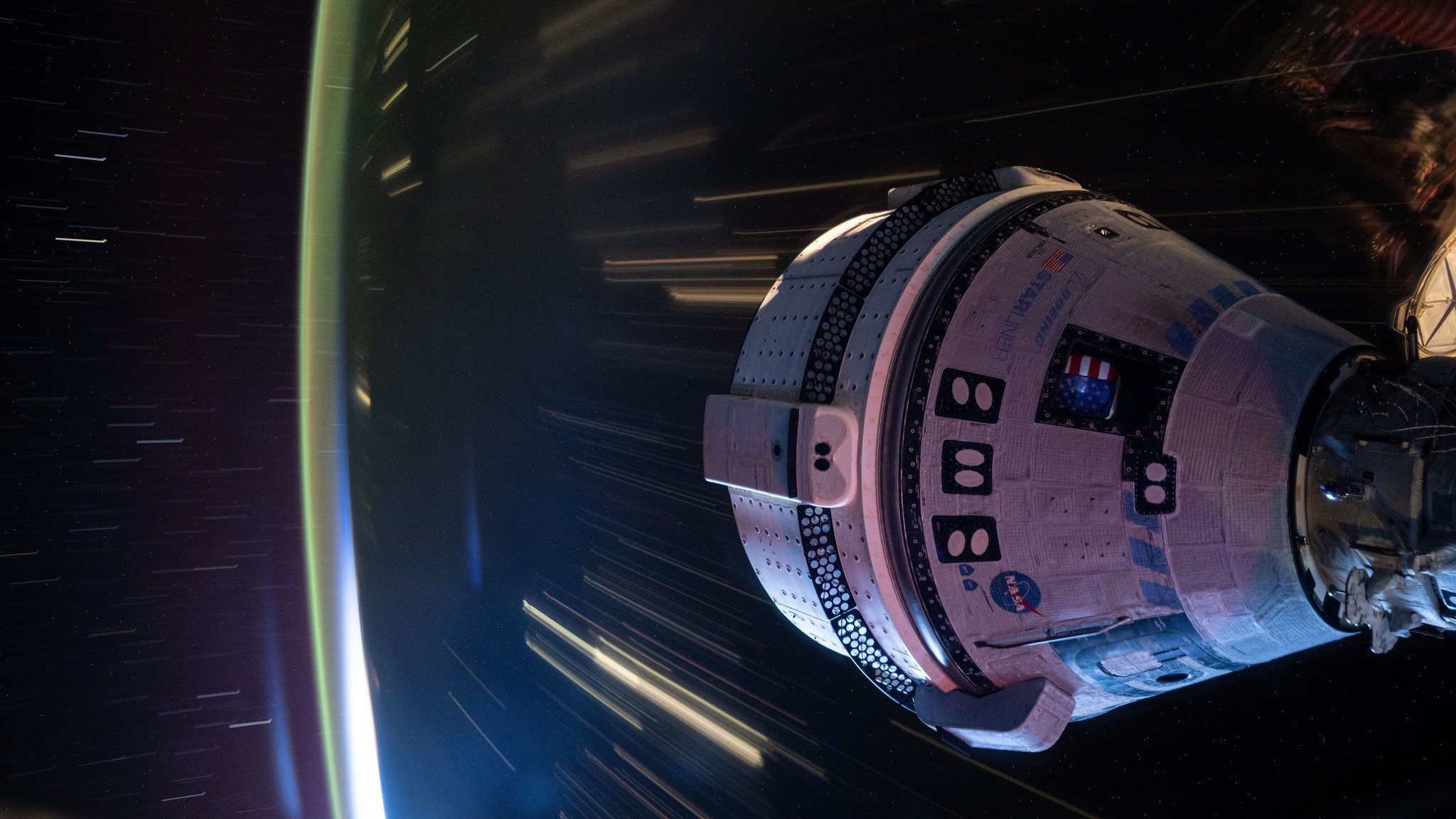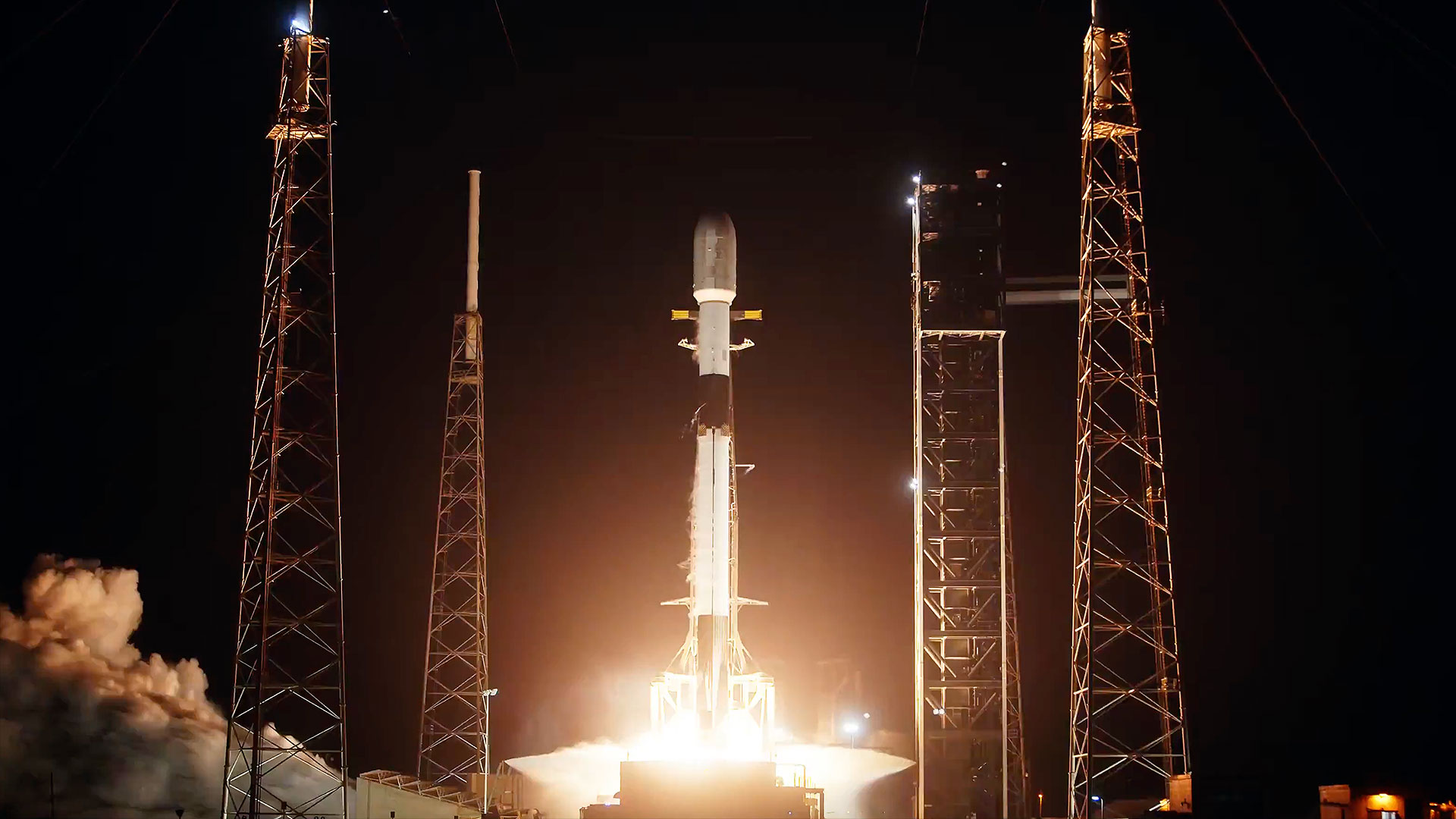NASA astronaut Butch Wilmore reports 'strange noise' coming from Boeing's Starliner spacecraft (video)
Mission Control at Johnson Space Center, Houston, likens the sound to a 'pulsing noise, almost like a sonar ping'
On Saturday (Aug. 31) NASA astronaut Butch Wilmore noticed something weird inside the Starliner spacecraft.
Wilmore radioed down to Mission Control to ask about the bizarre noises heard emanating from Starliner's speakers while the spacecraft is currently docked to the International Space Station (ISS).
"There's a strange noise coming through the speaker," Wilmore tells Mission Control "I don't know what's making it."
Wilmore then holds a device to the speakers, allowing Mission Control to hear the pulsating sound occurring at regular intervals.
Mission Control at Johnson Space Center in Houston likens the sound to a "pulsing noise, almost like a sonar ping."
Former Canadian astronaut Chris Hadfield commented on the situation in a post on X. In the post, you can hear the strange sound reported by Wilmore.
"There are several noises I'd prefer not to hear inside my spaceship, including this one that Boeing Starliner is now making," Hadfield wrote.
Breaking space news, the latest updates on rocket launches, skywatching events and more!
There are several noises I'd prefer not to hear inside my spaceship, including this one that @Boeing Starliner is now making. pic.twitter.com/NMMPMo5dttSeptember 1, 2024
The unusual sound was initially reported by Ars Technica, referencing a recording originally captured and shared by Michigan-based meteorologist Rob Dale on the NASA Spaceflight (NSF) forum.
NASA has since issued a press statement in response to the situation.
"A pulsing sound from a speaker in Boeing's Starliner spacecraft heard by NASA astronaut Butch Wilmore aboard the International Space Station has stopped," NASA said. "The feedback from the speaker was the result of an audio configuration between the space station and Starliner."
Due to the complex audio system on the ISS where multiple spacecraft and modules are interconnected, experiencing noise and feedback is normal, according to NASA. If the crew hears sounds from the communication system, they are asked to contact Mission Control.
"The speaker feedback Wilmore reported has no technical impact to the crew, Starliner, or station operations, including Starliner's uncrewed undocking from the station no earlier than Friday, Sept. 6," NASA continued.
Starliner launched on June 5 for its first-ever crewed mission, transporting NASA astronauts Suni Williams and Butch Wilmore to the ISS. The capsule successfully docked on June 6. Although the mission was initially expected to last around 10 days, NASA and Boeing extended the capsule's stay in orbit multiple times as they investigated a thruster issue.
Ultimately, NASA determined that returning Williams and Wilmore on Starliner was too risky. The agency announced that the two astronauts would instead return to Earth aboard a SpaceX Dragon capsule in February 2025. Meanwhile, the Boeing capsule will return to Earth uncrewed. It is scheduled to undock the ISS no earlier than 6:04 p.m. EDT (2204 GMT) on Sept. 6 and land six hours later in the White Sands Space Harbor in New Mexico.
Editor's note: This story was updated at 5:30 a.m. EDT (0900 GMT) to include details from NASA's press statement responding to the situation.

Daisy Dobrijevic joined Space.com in February 2022 having previously worked for our sister publication All About Space magazine as a staff writer. Before joining us, Daisy completed an editorial internship with the BBC Sky at Night Magazine and worked at the National Space Centre in Leicester, U.K., where she enjoyed communicating space science to the public. In 2021, Daisy completed a PhD in plant physiology and also holds a Master's in Environmental Science, she is currently based in Nottingham, U.K. Daisy is passionate about all things space, with a penchant for solar activity and space weather. She has a strong interest in astrotourism and loves nothing more than a good northern lights chase!

